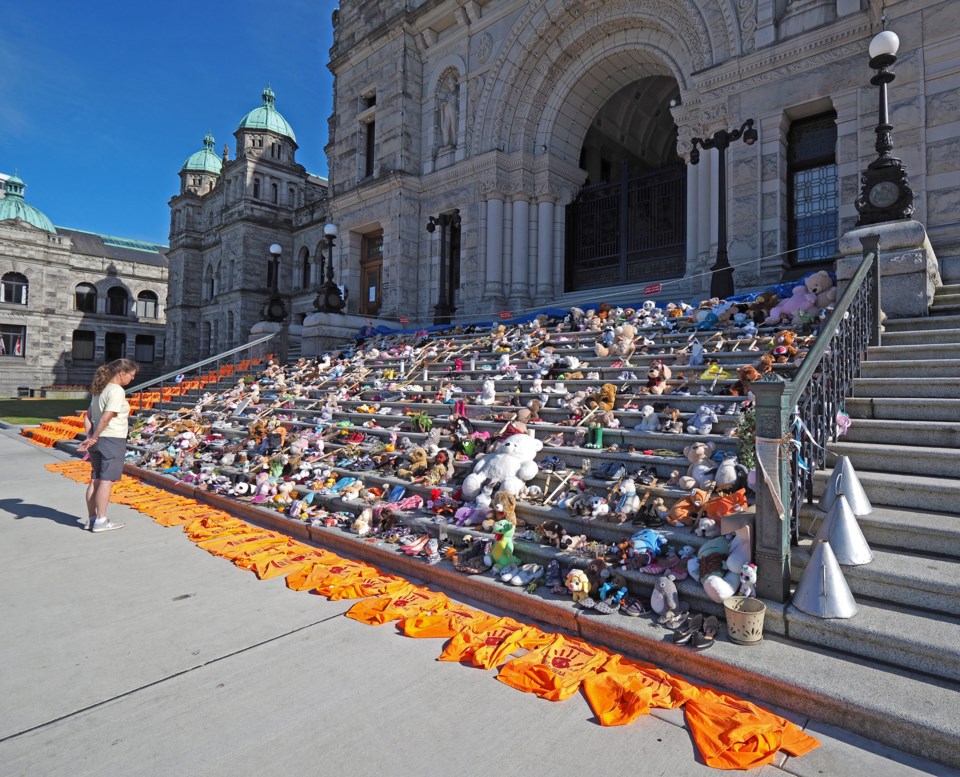Today is National Truth and Reconciliation Day.
Today in the Fin and here on the main page, we're highlighting previous Orca pieces by Indigenous writers, as well as stories about BC's First Nations and their communities. If you're looking for somewhere to start reading, listening, and learning, we humbly invite you to start here.
Carol Anne Hilton, of Nuu chah nulth descent from the Hesquiaht Nation, wrote about a court ruling confirming fishing rights for the Nuu chah nulth, which was like a ruling saying water is wet. Read all of Carol Anne's columns here.
In June, Nanwakolas Council President Dallas Smith wondered if we were headed for another long, hot summer in the woods. Read all of Dallas' columns here.
Kwakiutl author, consultant, communications strategist, and mom Alison Tedford joined Sarah Elder-Chamanara on Ellected to discuss residential schools, and how businesses can and should approach Indigenous writers and communities.
Sarah also welcomed Nahanni Fontaine, an Ojibway from the Sagkeeng Anishinaabe First Nation and Manitoba NDP House Leader, to discuss representation in Canada's halls of power, and missing and murdered Indigenous Women, Girls, and Two-Spirited.
Tsimshian writer Rudy Kelly shared why he chose to have a quieter, more reflective Canada Day this year. (Don't miss Mike McDonald's review of Rudy's excellent debut novel, All Native.)
Green MLA and Tsartlip First Nation member Adam Olsen’s speech about the discovery of unmarked graves of Indigenous children will be studied for a long time, wrote Rob Shaw.
Showing respect for Indigenous priorities can pay dividends, says Beverley O'Neil, a citizen of the Ktunaxa Nation.
Wet'suwet'en councillor Karen Ogen-Toews discussed where Reconciliation begins: when Indigenous peoples can stand on their own two feet, and their quality of life improves.
Katy Merrifield interviewed former Haisla Chief Councillor and current BC Liberal leadership candidate Ellis Ross.
Daniel Marshall has written extensively on BC and Indigenous history, including his small part working towards the return of Chief Tsulpi'multw's ceremonial blanket. Read all of Daniel's pieces here.
Buying an orange shirt to support residential school survivors is good, wrote Dene Moore - but please ensure it's from and supports the right organizations.
Frank Peebles on the growing realization that industrial projects' business plans are only as solid as their relationships with local First Nations.
The Calls to Action should be Canada's guidebook moving forward, says Gerry Chidiac.
The government should invest money in marking Indigenous graves - and not just at former residential school sites, says Mark Milke.
In June, Rob Shaw reported on two reports that highlight the harms done to Indigenous children to this day.
First Nations need clean, safe drinking water - NOW, says Joseph Quesnel.
Flex your brain, challenge yourself, and help preserve a culture - by learning an Indigenous language, says Roslyn Kunin.
"You wouldn't bulldoze a library, would you?" Jean Sorensen on how careful archaeological site assessments preserve Indigenous culture - and avoid work disruptions.



